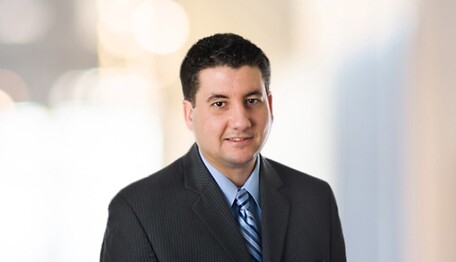Texas Allows Wide Scope for Certificate of Merit
The purpose of certificate of merit (sometimes referred to as affidavit of merit) statutes is to identify frivolous claims before the court wastes time and resources during litigation. More common in medical malpractice cases, several states have enacted similar requirements for professional negligence claims dealing with construction-related issues. While a subrogation attorney should not be bringing a frivolous case to suit anyway, the requirement adds another step in the process that plaintiffs need to properly navigate.
Chapter 150 of the Texas Civil Practice and Remedies Code requires that in an action arising out of professional services by a licensed or registered professional, claimants must file an affidavit from a qualified expert attesting to the theories of recovery, the negligence and the factual basis for the claims. The expert must be competent, have the same professional license or registration as the defendant and practice in the area of practice of the defendant.
In Janis Smith Consulting, LLC v. Rosenberg, No. 03-23-00370-CV, 2024 Tex. App. LEXIS 7961, the Court of Appeals of Texas, Third District (Court of Appeals) addressed a challenge from the defendant as to the sufficiency of the plaintiff’s certificate of merit in an interlocutory appeal. The Court of Appeals affirmed the lower court’s dismissal of the defendant’s motion to dismiss based on the allegedly improper certificate of merit, holding that the plaintiff’s expert was sufficiently qualified to certify the legitimacy of the case.
The case at hand involves plaintiff Eric B. Rosenberg’s hiring of defendant Janis Smith Construction, LLC and Janis Smith (collectively, Smith) to relocate his Lake Austin boat dock to comply with local permitting requirements. After a dispute about the scope of the work, Smith sued Rosenberg for breach of contract when he refused to pay an invoice of $2,215. Rosenberg countersued and included a claim for professional negligence. Attached with the counterclaim was a certificate of merit by Jay Campbell, P.E. (Campbell). Smith filed a motion to dismiss in response to the certificate of merit, arguing that Campbell lacked “the required knowledge, skill, experience, education, training and practice in the relevant area of specialization” to qualify as an affiant.
In the motion, Smith specified that Campbell did not have specific experience with the construction and maintenance of docks in Lake Austin and did not understand the nuances of regulations in the City of Austin. The lower court did not agree with this position, siding with the plaintiff in finding that Campbell was in the same practice area at issue: civil-engineering design and permitting services. Based on that similarity, his professional experience and skill and his review of the permitting at hand, Campbell was qualified to submit the certificate of merit.
In affirming the lower court’s holding, the Court of Appeals noted that the relevant law does not support the narrowly drawn practice-area requirements that Smith argued for in its motion. Notably, the court cited precedential language stating that while the certifying expert must be in the same practice area, this “does not require the expert to have the same job description.” Thus the lower court was reasonable in its acceptance of Campbell.
Theoretically, plaintiffs in professional negligence cases should already have a competent expert in place that can attest to the validity of a case upon filing suit. However, as all subrogation practitioners know, not all cases are the same. Having an expert supporting a theory may not be the same as having one that can qualify under the professional requirements and/or attest to the specificity of theories of liability at the beginning stage of a case. Thus, plaintiffs may need to partake in the sometimes-costly endeavor of bringing on a new expert to satisfy the certificate of merit requirement.
While the Janis Smith Consulting, LLC case does not remove the burden of the plaintiff having to file a certificate of merit, it makes it less cumbersome to do so. Because the holding allows for some flexibility with the qualifications of the expert used for the certificate of merit, practitioners can avoid scouring the country for an expert with the same job title as the defendant. From a practical point of view, this holding hopefully means that more often than not, the expert that worked on the case during the pre-suit investigation can submit the certificate of merit as well.

